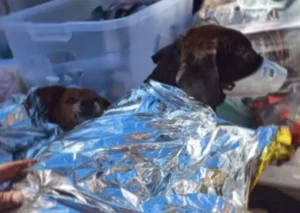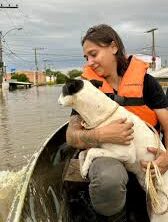The current tragedy affecting the state of Rio Grande do Sul is not limited exclusively to humans, but also extends to the fauna and flora of the area.
The intense rains experienced in the Southern region are directly related to global warming, as an increase in ocean temperatures directly contributes to a rise in the occurrence and magnitude of storms.
Given such significant rainfall, floods—especially in the face of climate negligence by government agencies—and the scope of their environmental impact become recurrent and, consequently, expected.
However, despite the incessant warnings from respected ecologists and meteorologists, the responses from the state government were virtually non-existent and ineffective in preventing or effectively remedying the torment of an entire population.
Thus, the existence of a lack of resources and assistance for humans indicates an even more abysmal neglect for other species in the region. In addition to the more than 2.3 million people affected by the floods, around 12 thousand animals were also rescued.
In order to better illustrate the conditions experienced by local wildlife, only in the city of Canoas, an area recently impacted by floods, there are over 10 thousand sheltered animals, which, in turn, arrive weakened by hypothermia, colds, or more serious illnesses.
Furthermore, cases of leptospirosis increase concern in shelters, demanding the creation of so-called isolation areas, which aim to minimize contagion by these organisms to humans.
Such measures arise from the premise that animals infected by abundant water can become vectors of the disease in the absence of proper treatment.
On the other hand, individuals from different areas of Brazil have been contributing financially and materially to pets and other species of Southern fauna. Many help through donations of items or money to shelters or NGOs operating in the state, while others prefer adoption as a means of directly providing care.










These dogs lack happiness, hug them.
wow i completely agree
I really do hope these people and Animals are doing alright.
I agree with Kalil